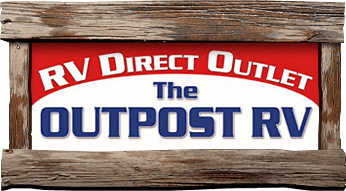Travel Trailer Safety Equipment
 When the weather begins to warm up and camping season rolls around, it’s important to have absolutely everything you need before hitting the road! The only thing that can bring the mood down on a camping trip more than an accident is being ill-prepared for the accident. Whether it’s an issue with the RV, an allergic reaction, or a fire, you’ll want to be prepared for anything that happens out in the wilderness. We have put together this guide to spread the word of some travel trailer safety equipment to keep you, your friends, and family as safe as possible! Visit the Outpost RV if you need some safety equipment, parts, or service on your RV. We proudly serve the areas of Goshen, Elkhart, South Bend, and Fort Wayne, Indiana.
When the weather begins to warm up and camping season rolls around, it’s important to have absolutely everything you need before hitting the road! The only thing that can bring the mood down on a camping trip more than an accident is being ill-prepared for the accident. Whether it’s an issue with the RV, an allergic reaction, or a fire, you’ll want to be prepared for anything that happens out in the wilderness. We have put together this guide to spread the word of some travel trailer safety equipment to keep you, your friends, and family as safe as possible! Visit the Outpost RV if you need some safety equipment, parts, or service on your RV. We proudly serve the areas of Goshen, Elkhart, South Bend, and Fort Wayne, Indiana.
Road Safety Kit
When driving with a trailer attached, you can never be too safe. Packing a toolkit is always a good idea. Even if you don’t consider yourself a mechanic, you might be able to look up a tutorial or get some help from a good Samaritan, so you want to make sure you have the necessary tools on hand. Tire pressure gauges are helpful at rest stops to ensure your tires are at their proper inflation levels in order to avoid a blowout. Long, dark, twisted roads are tricky, so it’s important to make sure you stand out if you need to pull over. Make sure you have flares packed to alert other drivers and direct traffic away from the accident. If you find yourself facing any trouble, you want to have the necessary road safety equipment.
Alarms & Detectors
It may seem like a smaller space is easier to keep an eye on when it comes to fires, but the confined space can make it even more dangerous. Since most travel trailers come equipped with things like stoves, furnaces, and other propane-based appliances: it’s important to have detection equipment. We recommend installing smoke alarms in every major room of your trailer. In order to be aware of any natural gas or propane leaks, “LP” or liquid propane alarms are essential. While LP alarms alert you of propane line or tank leaks, carbon monoxide alarms alert you from combustion fumes. Installing a variety of alarms provides a wider range of alertness to keep everyone safe.
Fire Extinguisher
Fires can start inside and outside of your trailer, so you will want to make sure you have an efficient way to extinguish it. One of the most basic but crucial pieces of safety equipment is a fire extinguisher. You should have at least one (two for larger trailers) at all times. There are several types of extinguishers to combat different types of fires. The two most useful types for travel trailers are Class B and Class C extinguishers. Class B is used to take down flammable liquid fires. A good example of this is a generator catching fire. Class C extinguishers are better for electrical fires, which tends to be a useful extinguisher inside of the trailer. Be sure to keep these in convenient locations so they are easily accessible in the event of an emergency.
Bear Mace
It’s not incredibly common to come across aggressive bears often on camping trips, but it can happen. Bear mace is generally inexpensive and can prove to be incredibly valuable. If you decide to camp out in a country with bears, having a can of this mace will provide a sense of security. It can also deter other types of predatory animals!
Emergency Radio
Dry camping is fun but means you are far away from help if some sort of accident occurs. If you are planning on camping away from campsites, an emergency radio is extremely helpful. Since you won’t be near a power source, make sure to pack batteries, a hand crank, or any other power source to get the radio up and running.
Before hitting the road on your next trip, use this list as a helpful guide for making sure you have some of the necessary travel trailer safety equipment you might need. If you are looking for more tips or to buy some equipment, come to the Outpost RV in Middlebury serving the Goshen, Elkhart, South Bend, and Fort Wayne areas of Indiana.

